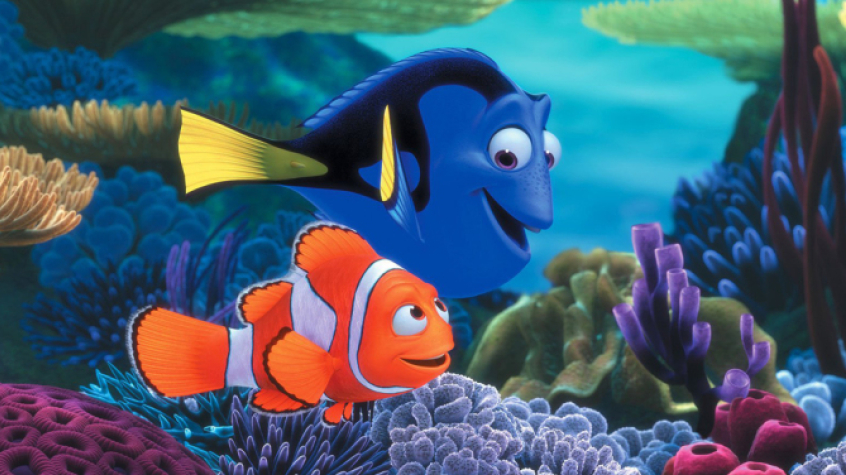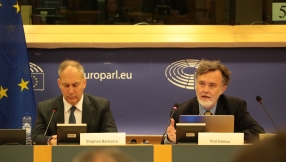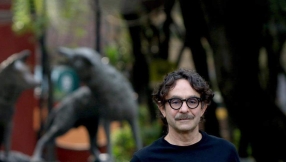
Thirteen years ago my family, including three small children, loved Finding Nemo. We had Nemo themed parties, Nemo computer games and still own some of the Nemo merchandise we accumulated. The opportunities the film provided to talk about bereavement and disability helped shape my family's view of the world. Now those three children are 13 years older and I have three other small children. All six of them are looking forward to watching Finding Dory.
I watched it in 3D and it is a truly immersive experience. Once again the colours were mesmerizing, the dialogue snappy and the characters adorable. It is a real return to form for Disney Pixar after some relatively disappointing films like Cars 2 and The Good Dinosaur.
But I came out concerned that it could have negative repercussions not only on one of my children, but on nearly 100,000 children in the UK.
On the positive side, there is no doubt that the producers have worked hard to engage well with disability, in this case Dory's "short term memory loss." The film does an excellent job of recognising the challenges that someone with a serious learning difficulty can have on their care-givers. But it also goes out of its way to show how someone who thinks differently can be an incredible gift to those around them, helping them see and appreciate the world differently. It has been a while since I can remember a family movie grappling with disability in this way. So far so awesome.
But, while working so hard to handle disability well, the film-makers have unwittingly reinforced some messaging that may disturb children who are, or were, in the care system. Over and over the plot works on the premise that ultimately young Dory was to blame for being separated from parents. Many looked-after children have large gaps in their memories from their early lives, and already wrongly blame themselves for their separation from their birth parents. Children are almost always removed not because of their behaviour or disabilities, but because of the behaviour or disabilities of the parents.
Secondly, it portrays a message that Dory's birth parents have been actively seeking her with the intention and capability of caring for her, and (minor spoiler alert) it suggests a "happy-ever-after" ending with the birth parents successfully reintegrated into Dory's life. Many adopted children have unrealistic narratives and idealistic expectations about their birth parents and possible reunification. Many adopters in their effort to protect their children from painful emotions, struggle to discuss the facts and feelings and futures regarding birth parents. It is not surprising that there has been a huge increase of adopted children secretly trying to find their birth parents via social media. Commonly, this has led to to more broken relationships than mended relationships, as they take an incredibly emotional journey without the support of those around them who care for them most. When my daughter turns 18 she will be able to make the decision for herself whether to bring her birth parents back into our lives and although I hope we can do that together for a fairy tale Disney ending, I expect it will be much more complicated.
At the last count there were some 93,468 children in the care of local authorities in the UK and around 70 per cent of these children have experienced such serious levels of neglect or abuse that it has led to them being in care. The last thing they need as they come to terms with all they have faced at the start of their lives is unhelpful messaging as portrayed in Finding Dory. Additionally, the children in the UK from the two million single-parent families may also be disturbed by suggestions that separation from one of their birth parents was their fault, or by offering them false hope of their parents reconciling and reuniting.
I do not believe it was the intention of Disney Pixar to cause this distress, as the film company has an excellent history of not only providing great family entertainment, but also meaningfully engaging with important issues such as prejudice (Monsters Inc. and Ratatouille), mental health (Inside Out), friendship (Toy Story), the power of family (The Incredibles), and grief and bereavement (Up).
But for parents of looked-after children I would offer a warning about going to see the film at all. If you know your child has not really understood the circumstances that brought them into care you may want to avoid this film. If you know your child in any way blames themselves for their removal from birth family this is not the film for you. If your child often talks or thinks about reunification with birth family, this film might make life even more complicated.
There was so much I enjoyed about Finding Dory. It is a well crafted and beautifully executed movie. Its messages on disability could really help my children. However, I am disappointed that a major film studio has not thought carefully about how some of the world's most vulnerable children might react to it. I look forward to seeing how Disney Pixar can find ways of helping to change the world's mind about the needs and circumstances of children in foster and adoptive families in the future.
Rev Dr Krish Kandiah is the founding director of Home for Good and an author and speaker. Follow him on Twitter @krishk













